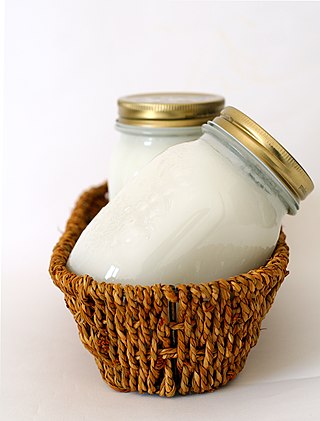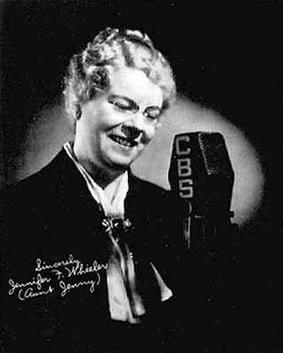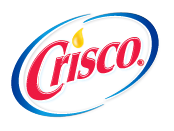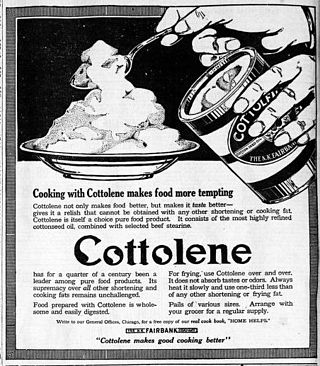Related Research Articles

A frozen meal, prepackaged meal, ready-made meal, ready meal (UK), frozen dinner, and microwave meal is ultra-processed food portioned for an individual. A frozen meal in the United States and Canada usually consists of a type of meat, fish, or pasta for the main course, and sometimes vegetables, potatoes, and/or a dessert. Some frozen meals feature Indian, Chinese, Mexican, and other foods of international customs. Another form of convenience food, which is merely a refrigerated ready meal that requires less heating but expires sooner, is popular.

Danish cuisine originated from the peasant population's own local produce and was enhanced by cooking techniques developed in the late 19th century and the wider availability of goods during and after the Industrial Revolution. Open sandwiches, known as smørrebrød, which in their basic form are the usual fare for lunch, can be considered a national speciality when prepared and garnished with a variety of ingredients. Hot meals are typically prepared with meat or fish. Substantial meat and fish dishes includes flæskesteg and kogt torsk with mustard sauce and trimmings. Ground meats became widespread during the industrial revolution and traditional dishes that are still popular include frikadeller, karbonader and medisterpølse. Denmark is known for its Carlsberg and Tuborg beers and for its akvavit and bitters, but amongst the Danes themselves imported wine has gained steadily in popularity since the 1960s.

The J.M. Smucker Company, also known as Smuckers, is an American manufacturer of food and beverage products. Headquartered in Orrville, Ohio, the company was founded in 1897 as a maker of apple butter. J.M. Smucker currently has three major business units: consumer foods, pet foods, and coffee. Its flagship brand, Smucker's, produces fruit preserves, peanut butter, syrups, frozen crustless sandwiches, and ice cream toppings.

Cottonseed oil is cooking oil from the seeds of cotton plants of various species, mainly Gossypium hirsutum and Gossypium herbaceum, that are grown for cotton fiber, animal feed, and oil.

Shortening is any fat that is a solid at room temperature and is used to make crumbly pastry and other food products.

Schmaltz is rendered (clarified) chicken or goose fat. It is an integral part of traditional Ashkenazi Jewish cuisine, where it has been used for centuries in a wide array of dishes, such as chicken soup, latkes, matzah brei, chopped liver, matzah balls, fried chicken, and many others, as a cooking fat, spread, or flavor enhancer.

Aunt Jenny was an advertising character created for Spry Vegetable Shortening. Primarily portrayed by Edith Spencer, Aunt Jenny was best known as host and narrator of the long-lived radio show, Aunt Jenny’s Real Life Stories, but she was also seen promoting the product in drawings, photographs and cookbooks.

Tater tots, also known as baby taters or potato gems are grated potatoes formed into small cylinders and deep-fried, often served as a side dish. "Tater" is a dialect form of the word potato. The name "tater tot" is a registered trademark of the American frozen food company Ore-Ida, but is often used as a generic term. Ore-Ida also markets a coin-shaped version called "Crispy Crowns".

Crisco is an American brand of shortening that is produced by B&G Foods. Introduced in June 1911 by Procter & Gamble, it was the first shortening to be made entirely of vegetable oil, originally cottonseed oil. Additional products marketed under the Crisco brand include a cooking spray, various olive oils, and other cooking oils, including canola, corn, peanut, sunflower, and blended oils.

Twisties are a type of cheese curl corn-based snack food product, available mainly in Australia and other Oceanian countries. In Europe they are marketed as Fonzies, and in France as "Belin Croustilles". It was launched in 1950 by the General Foods Corporation. The brand name is owned by The Smith's Snackfood Company.

Chocolate crackles are a popular children's confection in Australia and New Zealand, especially for birthday parties and at school fêtes. The earliest recipe found so far is from The Australian Women's Weekly in December 1937.

A fishcake is a culinary dish consisting of filleted fish or other seafood minced or ground, mixed with a starchy ingredient, and fried until golden.

Cottolene was a brand of shortening made of beef suet and cottonseed oil produced in the United States from the late 1880s until the mid-20th century. It was the first mass-produced and mass-marketed alternative to cooking with lard, and is remembered today for its iconic national ad campaign and the cookbooks that were written to promote its use.
James F. Boyce was an American chemist who worked for the N.K. Fairbank Company of Chicago, a manufacturer of lard, cooking oils, soaps, and detergents. He helped create new washing products such as Gold Dust washing powder. Boyce pioneered techniques that are now used in the isolation and removal of consumable hydrogenated vegetable oils from plants. Later in life, he ran the Chicago Glass Novelty Company.

The KFC Original Recipe is a secret mix of ingredients that fast food restaurant chain KFC uses to produce fried chicken.

Vegetable chips are chips (crisps) that are prepared using vegetables other than potatoes. Vegetable chips may be fried, deep-fried, dehydrated, dried, or baked. Many different root vegetables or leaf vegetables may be used. Vegetable chips may be eaten as a snack food and may accompany other foods such as dips, or be used as a topping on dishes. In the United States, vegetable chips are often mass-produced, with many brands marketed to consumers.

The old-fashioned doughnut is a term used for a variety of cake doughnut prepared in the shape of a ring with a cracked surface and tapered edges. While many early cookbooks included recipes for "old-fashioned donuts" that were made with yeast, the distinctive cake doughnuts sold in doughnut shops are made with chemical leavener and may have crisper texture compared to other styles of cake doughnuts. The cracked surface is usually glazed or coated with sugar.

Fat hydrogenation is the process of combining unsaturated fat with hydrogen in order to partially or completely convert it into saturated fat. Typically this hydrogenation is done with liquid vegetable oils resulting in solid or semi-solid fats.
References
- ↑ James Lileks The Gallery of Regrettable Food (2001, ISBN 0-609-60782-0)
- ↑ "Favorite Recipes of the Aetna Girls, August 1975" [Issued by the Toledo, Ohio office, Bayer & Associates.]
- ↑ "Toward Evening" by John Updike, New Yorker magazine, Feb. 11, 1956; "The Rivermen" by Joseph Mitchell, April 4, 1959; "Spry for Frying" by Lore Segal, April 18, 2011,
- ↑ June 28, 1958
- ↑ "Spry Φυτικό Βούτυρο 350Gr". supermarketcy.com.cy (in Greek). Retrieved 2022-01-06.
- ↑ "UK television adverts 1955–1990" at headington.org.uk